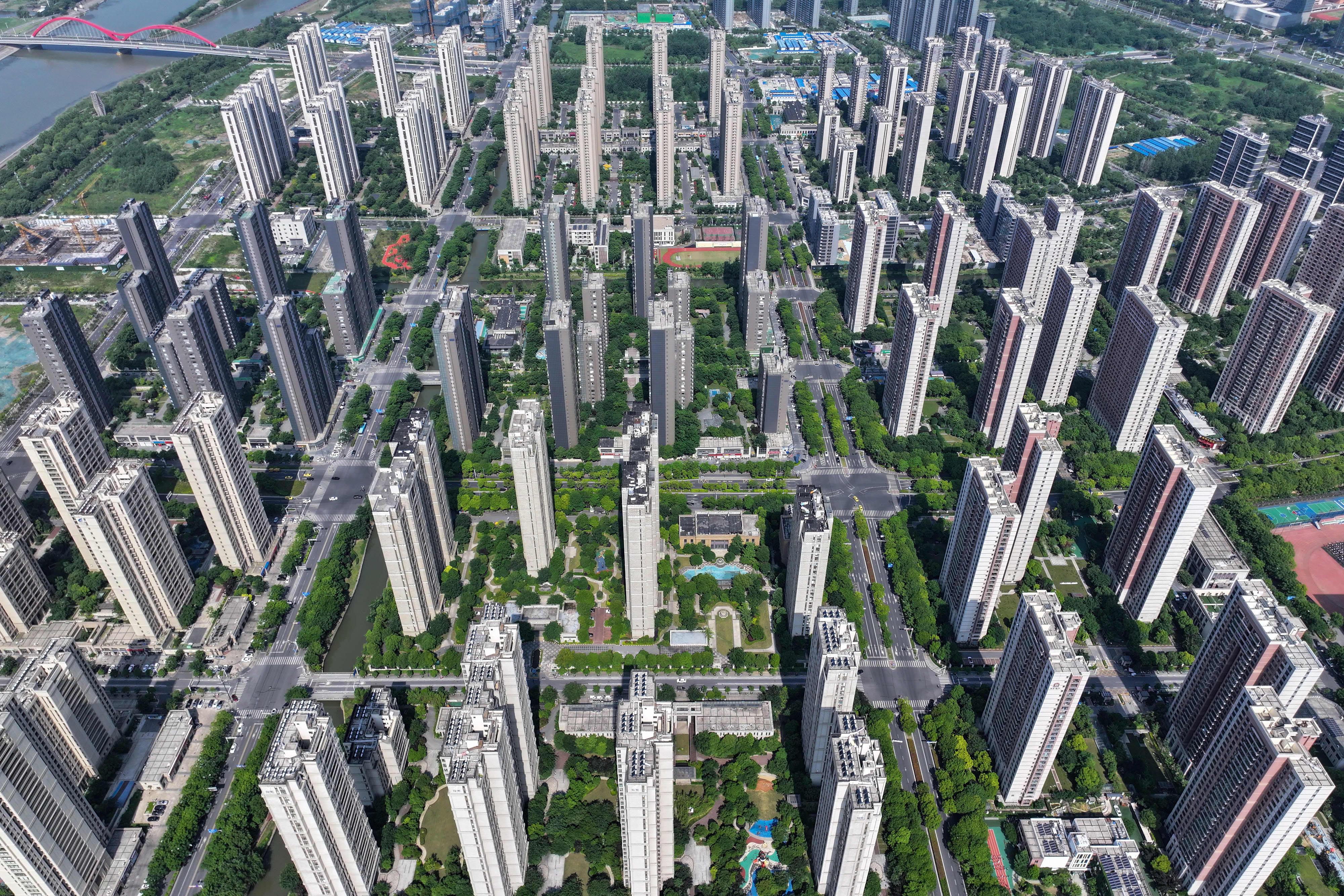These and other measures announced Friday marked Beijing’s latest efforts to address issues in the massive real estate sector.
The People’s Bank of China will provide 300 billion yuan ($42.25 billion) to financial institutions to lend to local state-owned enterprises (SOEs) so they can buy unsold apartments that have already been built.
Also Friday, the PBOC removed a floor on mortgage interest rates, and lowered the minimum down payment ratio for first- and second-time home buyers.
BEIJING — Chinese authorities on Friday pledged new support for state-owned enterprises to enable them to buy unsold apartments, in an effort that could help developers get more funding to finish construction on pre-sold properties.
These and other measures announced Friday marked Beijing’s latest efforts to address issues in the massive real estate sector.
“I think it is encouraging that the policy is taking a turn of direction trying to support the housing market,” said Zhu Ning, a professor of finance at Tsinghua University and author of the book “China’s Guaranteed Bubble.”
People’s Bank of China Deputy Governor Tao Ling told reporters at a briefing Friday the central bank would provide 300 billion yuan ($42.25 billion) to financial institutions to lend to local state-owned enterprises (SOEs) so they can buy unsold apartments that have already been built.
The central bank expects the support to release 500 billion yuan in financing for such purchases, which the SOEs could turn into affordable housing.
The real estate companies can then use funds earned from those sales to complete construction on other apartments, the central bank said.
As for unfinished, pre-sold properties, the National Financial Regulatory Administration Deputy Director Xiao Yuanqi told reporters that commercial banks have provided 935 billion yuan in loans to finish construction on whitelisted projects since the program was released in January.
“The government’s purchase of housing inventory can inject more liquidity to developers, who could then have more resources for housing delivery,” Larry Hu, chief economist at Macquarie, told CNBC. “Finally the government stepped in as the buyer of the last resort.”
“At this stage, it’s mainly SOEs and local governments to implement the policies, but their resources may be too limited to move the needle at the macro level,” he said. “Later on, we might see more efforts from the central government.”
Developers “that must go bankrupt should go bankrupt, while those that need to be restructured should be restructured,” Dong Jianguo, deputy head of the ministry of Housing and Urban-Rural Development, told reporters in Mandarin, translated by CNBC. He said homebuyers’ interests and rights should be prioritized, and those that violate the law should be punished.


Yes… and well, let’s extend a sort of best-case into the future:
This is bad. Either the developers have to build low-value units which they expect to be able to sell at lower cost than whatever the SOE will be selling units for, or they have to build high-value units which they expect they will be able to sell to wealthier clients who don’t want the units that the SOEs are selling.
If the former, then they will undercut the SOEs’ ability to sell the units they purchase, leaving the government holding bad assets. If the latter, then there will be no additional affordable housing built.
So I think you’re right, it would make sense for a lot of the developers to simply take the money from the SOEs and then leave the market.
Is the assumption that the SOE’s would offer properties for sale at all (instead of leasing) and for sale at lower than market value based on anything?
It absolutely is a possibility. But the SOE could take control of the property and be a landlord to the developers. Lease the land for 10, 20, 50 years but allow the developers to renovate, demolish, rebuild, etc. The developer gets to make some money but for a limited time frame and has more oversight when it comes to what they can get away with.
Hmm, this is specifically about the SOEs purchasing unsold (but finished) properties using loans from PBOC. There shouldn’t be any need for the developers to still be involved with the properties afterward. The SOEs should be making the housing available for use after purchase.
If the SOEs offer the properties for sale, they will have to lower the sale price in order to move the properties because they already aren’t selling at the current price (that’s the problem that the government is trying to solve).
But you’re right that leasing is an option, and could be a long-term income stream that could offset the debt being incurred with the loans. That might make sense.
Depends on how fast the SOE’s want the uninhabited properties to get lived in (used?). They could lower the asking prices some to encourage buyers (renters too?) but can also sit on vacant places longer than developers still needing to service debt could. Maybe this’ll manage a dip in the real estate market to be a wobble over time instead of a sudden bursting bubble.